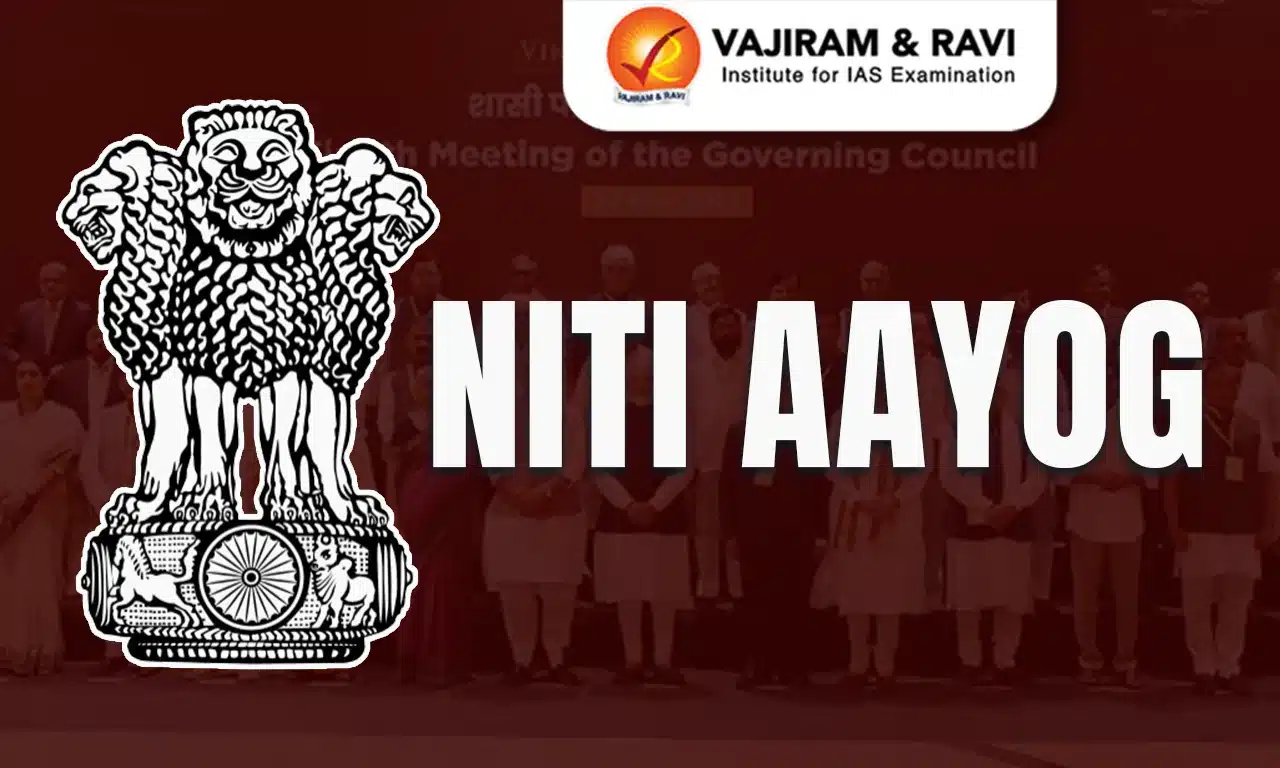Geographical Indications (GI tags) are signs used on products that have a specific geographical origin and possess distinctive qualities, reputation, or characteristics attributable to that place of origin. GI tags serve as intellectual property rights that identify a product's unique geographical source, providing legal protection and preventing unauthorised use.
In India, the Geographical Indications of Goods (Registration and Protection) Act, of 1999 governs the registration and protection of GIs. These tags play a crucial role in promoting and safeguarding the unique products and traditional knowledge of various regions, contributing to rural development, preserving cultural heritage, and enhancing the marketability of Indian products in the global market.
What is GI Tag?
A Geographical Indication (GI tag) is a sign used on products with a specific geographical origin, possessing unique qualities or reputation due to that origin. It serves as an intellectual property right (IPR), attributing a product’s quality, reputation, or other characteristic to its geographical origin.
- GIs are recognized as an aspect of IPRs under the Paris Convention for the Protection of Industrial Property and the Trade-Related Aspects of Intellectual Property Rights (TRIPS) Agreement.
- Benefits: It lets approved users stop others from using the indication if their product doesn't meet the standards. A GI tag confers the following rights to the registered proprietors:
- Legal protection against unauthorised use by others.
- Exclusive right to use the GI tag for the specified goods or products.
- Ability to prevent misuse, imitation, or misleading representations of the GI tag.
- Legal recourse against infringement or unfair competition.
- Type of products: Geographical indications can be used for a wide range of products, including agricultural products, foodstuffs, wines, spirits, handicrafts, and industrial products.
- However, such products must possess specific qualities or characteristics attributable to their geographical origin.
- Eligibility criteria: Any trader’s group, association, or organization can apply for a GI tag. They must demonstrate the product’s uniqueness with historical records and a detailed production process.
- GI tags aren’t only for popular products; they exist for hundreds of items across states, each recognising a specific region and product.
International Conventions on GI Tags
These international conventions and systems play a crucial role in protecting and promoting products with a GI tag, ensuring they maintain their unique identity and quality.
- Paris Convention: The Paris Convention for the Protection of Industrial Property (1883) provides a multilateral framework for the protection of industrial property rights, including geographical indications.
- It establishes the principles of national treatment and the right of priority.
- Lisbon System: The Lisbon Agreement for the Protection of Appellations of Origin and their International Registration (1958) establishes an international registration system for appellations of origin, a specific type of GI.
- It provides a centralised filing procedure and ensures protection for all contracting parties.
- Madrid System: The Madrid System for the International Registration of Marks, while primarily focused on trademarks, can also be utilised for the protection of geographical indications through the registration of collective or certification marks.
GI Tag in India
The Geographical Indication Registry, a division of the Ministry of Commerce and Industry’s Department of Industry Promotion and Internal Trade (DIPIT), is responsible for issuing GI tags, further safeguarding these unique products and their geographical origins. The GI tag holds significant importance for India, as it:
- Promotion and protection: It promotes and safeguards the unique products and traditional knowledge of various regions, contributing to rural development and empowerment.
- Marketability and competitiveness: It enhances the credibility/marketability and competitiveness of Indian products in the global market.
- Preservation of cultural heritage: It preserves the cultural heritage and traditional practices associated with the production of these products.
- Prevention of misappropriation: It prevents misappropriation and misuse of traditional knowledge by unauthorized parties.
- Sustainable practices and environmental conservation: It encourages sustainable production practices and environmental conservation in the designated regions.
GI Act of 1999
The Geographical Indications of Goods (Registration and Protection) Act, 1999 is the main law in India that oversees the registration and protection of geographical indications. The Act’s key provisions include:
- The establishment of the Geographical Indications Registry, which is responsible for processing and registering GI applications.
- The criteria for registering a GI, include the association between the product and its geographical origin, and the reputation or quality attributable to that origin.
- The duration of protection is initially 10 years but can be renewed indefinitely.
- Provisions for enforcing GI rights, including civil and criminal penalties for infringement.
- Provisions for registering authorised users and associations of producers.
GI Tag as an IPR
Geographical Indications are recognized as a form of intellectual property rights under the TRIPS Agreement of the World Trade Organization (WTO). As an IPR, GIs:
- Protect the collective rights of producers and communities associated with a particular product.
- Prevent the misuse or misappropriation of a product’s reputation or characteristics by unauthorized parties.
- Contribute to the preservation of traditional knowledge and cultural heritage.
- Promote fair trade practices and sustainable development in rural communities.
State Wise GI Tag Products in India
The GI Registry is located in Chennai processes and registers GI Applications. The tag was first given to Darjeeling Tea. However, GI tags aren’t only for popular products; they exist for hundreds of items across states, each recognizing a specific region and product. The various states' GI tags are as follows:
| State | GI Tags |
| Andhra Pradesh |
- Handicraft: Srikalahasti Kalamkari, Kondapalli Bommallu, Budithi Bell and Brass Metal Craft, Uppada Jamdani Sarees, Bobbili Veena, Durgi Stone Carvings, Etikoppaka Toys. - Food Stuff: Tirupati Laddu, Bandar Laddu - Agricultural: Guntur Sannam Chilli, Banaganapalle Mangoes. |
| Arunachal Pradesh |
- Handicraft: Idu Mishmi Textiles - Agricultural: Khaw Tai (Khamti Rice), Yak Churpi |
| Assam |
- Handicraft: Muga Silk - Manufactured: Judima |
| Bihar |
- Handicraft: Madhubani Paintings, Sujini Embroidery - Manufactured: Bhagalpuri Zardalu, Katarni Rice - Food Stuff: Silao Khaja |
| Chattisgarh | - Handicraft: Bastar Dhokra, Champa Silk Saree and Fabrics |
| Goa |
- Manufactured: Feni - Agricultural: Khola Chilli |
| Gujarat |
- Handicraft: Sankheda Furniture, Tangaliya Shawl, Jamnagari Bandhani, Mata ni Pachhedi - Agricultural: Bhalia Wheat |
| Himachal Pradesh |
- Handicraft: Kullu Shawl - Agricultural: Kangra Tea |
| Jharkhand | - Handicraft: Sohrai – Khovar Painting. |
| Karnataka |
- Handicraft: Mysore Silk, Kasuti Embroidery, Molakalmuru Sarees Handicraft, Sandur Lambani Embroidery, Kinhal Toys, Kolhapuri Chappal - Manufactured: Mysore Sandal Soap, Mysore Agarbathi - Agricultural: Coorg Orange, Coorg Green Cardamom, Devanahalli Pomello, Appemidi Mango, Byadagi Chilli, Indi Limbe, Monsooned Malabar Robusta Coffee, Monsooned Malabar Arabica Coffee |
| Kerala |
- Handicraft: Aranmula Kannadi, Alleppey Coil. - Agricultural: Navara Rice, Pokkali Rice, Kaipad Rice, Chengalikodan Nendran Banana, Nilambur Teak, Tirur Betel Leaf (Tirur Vettila), Attappady Thuvara |
| Madhya Pradesh |
- Handicraft: Chanderi Sarees, Maheshwar Sarees and Fabrics - Agricultural: Sharbati Gehu - Food Stuff: Jhabua Kadaknath Black Chicken Meat, Ratlami Sev |
| Maharashtra |
- Agricultural: Nashik Grapes, Ajara Ghansal Rice, Mangalwedha Jowar, Navapur Tur Dal, Lasalgaon Onion, Sangli Raisins, Ambemohar Rice, Alphonso - Handicraft: Kolhapuri Chappal |
| Manipur | - Handicraft: Shaphee Lanphee, Wangkhei Phee |
| Mizoram | - Handicraft: Pawndum, Tawlhlohpuan |
| Odisha |
- Handicraft: Konark Stone Carving, Khandua Saree and Fabrics, Gopalpur Tussar Fabrics, Dungaria Kondh Embroidered Shawl - Agricultural: Kandhamal Haladi, Koraput Kalajeera Rice |
| Rajasthan |
- Handicraft: Thewa Art Work, Molela Clay Work, Sanganeri Hand Block Printing, Bagru Hand Block Print, Pokaran Pottery. - Natural: Makrana Marble |
| Tamilnadu |
- Handicraft: Salem Fabric, Kancheepuram Silk, Madurai Sungudi, Thanjavur Paintings, Salem Silk (Salem Venpattu), Kovai Kora Cotton Sarees, Arani Silk, Pattamadai Pai (Pattamadai Mat), Toda Embroidery, Mahabalipuram Stone Sculpture, Thirubuvanam Silk Sarees, Dindigul Locks, Kandangi Sarees. - Manufactured: East India Leather. - Agricultural: Madurai Malli, Erode Manjal (Erode Turmeric). - Food Stuff: Kovilpatti Kadalai Mittai, Salem Sago. - Natural: Marthandam Honey. |
| Telangana | - Handicraft: Pochampalli Ikat, Nirmal Toys and Craft, Gadwal Sarees, Cheriyal Paintings, Pembarthi Metal Craft, Adilabad Dokra, Telia Rumal |
| Uttar Pradesh |
- Handicraft: Khurja Pottery, Mahoba Gaura Patthar Hastashlip, Mainpuri Tarkashi, Sambhal Horn Craft - Agricultural: Mango Malihabadi Dusseheri, Kalanamak Rice. |
| West Bengal |
- Handicraft: Nakshi Kantha, Baluchari Saree, Dhaniakhali Saree, Purulia Chau Mask - Agricultural: Darjeeling Tea, Tulapanji Rice, Gobindobhog Rice - Food Stuff: Joynagar Moa, Bardhaman Sitabhog. |
| Union Territory | GI Tags |
| Jammu and Kashmir |
- Handicraft: Kani Shawl, - Agricultural: Ramban Sulai Honey, Mushqbudji Rice, Bhaderwah Rajmash, Kashmir Saffron |
| Pondicherry | - Handicraft: Villianur Terracotta Works, Tirukanur Papier Mache Craft |
| Ladakh |
- Handicraft: Pashmina Wool - Agricultural: Ladakh Raktsey Karpo Apricot |
| Joint GI Tag Products of States | |
|
- Karnataka and Kerala: Monsooned Malabar Robusta Coffee, Monsooned Malabar Arabica Coffee - Kerala and TN: Alleppey Green Cardamom - Maharashtra, Gujarat, Dadara & Nagar Haveli, and Daman Diu: Warli Painting - Punjab / Haryana / H.P / Delhi / Uttarakhand / U.P / J&K: Basmati - Punjab, Rajasthan and Haryana: Phulkari - Manipur and Nagaland: Chak - Hao |
|
Last updated on March, 2026
→ UPSC Notification 2026 is now out on the official website at upsconline.nic.in.
→ UPSC IFoS Notification 2026 is now out on the official website at upsconline.nic.in.
→ UPSC Calendar 2026 has been released.
→ UPSC Final Result 2025 is expected to be released soon.
→ Check out the latest UPSC Syllabus 2026 here.
→ Join Vajiram & Ravi’s Interview Guidance Programme for expert help to crack your final UPSC stage.
→ UPSC Mains Result 2025 is now out.
→ UPSC Prelims 2026 will be conducted on 24th May, 2026 & UPSC Mains 2026 will be conducted on 21st August 2026.
→ The UPSC Selection Process is of 3 stages-Prelims, Mains and Interview.
→ Prepare effectively with Vajiram & Ravi’s UPSC Prelims Test Series 2026 featuring full-length mock tests, detailed solutions, and performance analysis.
→ Enroll in Vajiram & Ravi’s UPSC Mains Test Series 2026 for structured answer writing practice, expert evaluation, and exam-oriented feedback.
→ Join Vajiram & Ravi’s Best UPSC Mentorship Program for personalized guidance, strategy planning, and one-to-one support from experienced mentors.
→ Check UPSC Marksheet 2024 Here.
→ UPSC Toppers List 2024 is released now. Shakti Dubey is UPSC AIR 1 2024 Topper.
→ Also check Best UPSC Coaching in India
GI Tag FAQs
Q1. What is a Geographical Indication (GI) tag?+
Q2. How are GI tags governed in India?+
Q3. Can a GI tag be used indefinitely?+
Q4. Are GI tags recognised internationally?+
Q5. Can a GI tag be registered as a trademark?+














